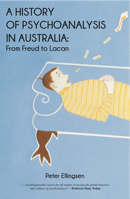On the eve of the publication of the latest installment of the psychiatric bible, the Diagnostic and Statistical Manual of Mental Disorders (DSM), let me propose an alternative. No, not the ICD, International Classification of Mental and Behavioural Disorders, but rather what actor Hugh Grant told an American TV when badgered to ‘get counselling’. Grant’s reply — that he preferred to ‘read books’ — sounded hilarious to a US audience. But that is only because they, and many of us, don’t read literature.
Literature, as Belgian psychology professor, Paul Verhaeghe, once told me, is how therapists might grasp their trade. Verhaeghe – whose Love in Times of Loneliness, and On Being Normal and Other Disorders, has made him that rarest of things, a best-selling author on psychotherapy – reaches for a novel rather than a manual when he wants to diagnose.
This might sound contrary, but it has allowed him to set the pace in research as part of a study group under the auspices of the International Psychoanalytic Association. In collaboration with others, including Mark Solms, he has demonstrated the uselessness of reducing psychological and psychiatric problems to neuro-biological, hereditary disease, as DSM does. Verhaeghe, who like Freud won the Goethe Prize for literature, is, along with Adam Phillips and Christopher Bollas, a therapist who reads and writes in ways that transcend, and therefore enlivens, psychotherapy.
In this, he follows Freud who felt that novelist Arthur Schnitzler (author of the book upon which Kubrick’s film Eyes Wide Shut was based) grasped psychoanalysis better than did many analysts. This is because, as the British novelist, Julian Barnes writes, ‘Fiction, more than any other written form, explains and expands life…Novels tell us the most truth about life: what it is, how we live it, what it might be for, how we enjoy and value it, how it goes wrong and how we lose it.’ The key here is that the essence of successful fiction (like successful therapy) is that it works as a by-product rather than the object of the story it tells. Narrative with a didactic purpose, like directed therapy, is a definition of imaginative failure.
Barnes’ book, Flaubert’s Parrot, does this admirably. Ostensibly the story of an eccentric English doctor exercising his obsession about the French writer, Gustave Flaubert, by searching for the stuffed parrot he had on his desk, the book is part fiction, part biography. As with any therapy, what is true and what is constructed, is hopelessly intertwined. As the book’s protagonist, says: ‘The past is autobiographical fiction pretending to be a parliamentary report.’ A source of the energy of the book is the effort it makes to resurrect a past that doesn’t lend itself to straightforward historical narrative. This is because — as in therapy — an intimate personal past is discontinuous with the life that it produces.
Rather than accept DSM’s characterisation of depression as a disease, I would listen to Barnes’ character, Dr Geoffrey Braithwaite, who says of grief: ‘You do come out of it…but not like a train coming out of a tunnel, bursting through the downs into sunshine and that swift, rattling descent to the Channel; you come out of it as a gull comes out of an oil-slick. You are tarred and feathered for life.’
If this sounds too inexact, remember that Freud felt poets got to where he was going before him, something that Braithwaite echoes when he notes that: ‘Everything you invent is true: you can be sure of that. Poetry is a subject as precise as geometry.’ Virginia Woolf was also good on depression. In her novel Jacob’s Room, she saw how depression is the price we pay for loving and losing what we love. There is wisdom you won’t find in DSM in her describing observers taking note of a sad person: ‘Their lack of concern for him was not the cause of his gloom, but some more profound conviction; it was not that he himself happened to be lonely, but that all people are.’ She goes on: ‘There rose in her mind a curious sadness as if time and eternity showed through skirts and waistcoats, and she saw people passing tragically to destruction…these changes of mood wear us out.’
Writers can, I think, see further than manuals. Here is English novelist Martin Amis on his mid life crisis: ‘I saw that it was intrinsic and structural. It had been to do with things that were already wrong and were not being faced… This was no magic bullet.’ Depression, he felt, ‘puts you on a beachhead of pain that your cliché has created’. And his solution: ‘Really, the conscious mind can afford to give itself a rest. The big jobs are done by the unconscious. The unconscious does it all.’
To understand despair, I go to American writer, James Salter’s description of his father’s decline in Salter’s memoir, Burning the Days: ‘I think of the hopeless visits to psychiatrists, the shock treatments and aimless drives in the country to somehow get away. I think of him walking along the street, preoccupied, the pale wake of cigar smoke following, the blind strolls while his mind sorted through impossibilities, over and over.’

